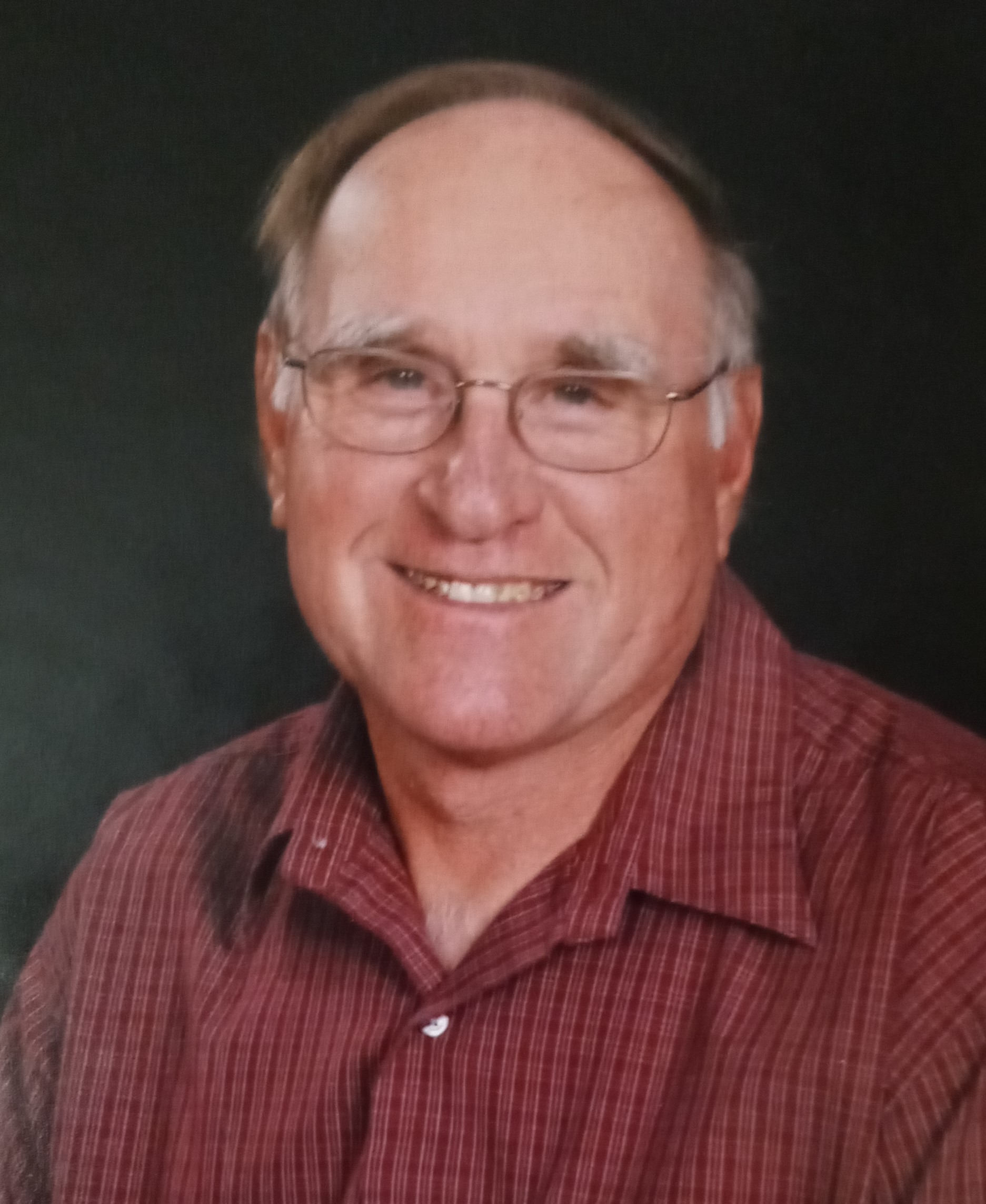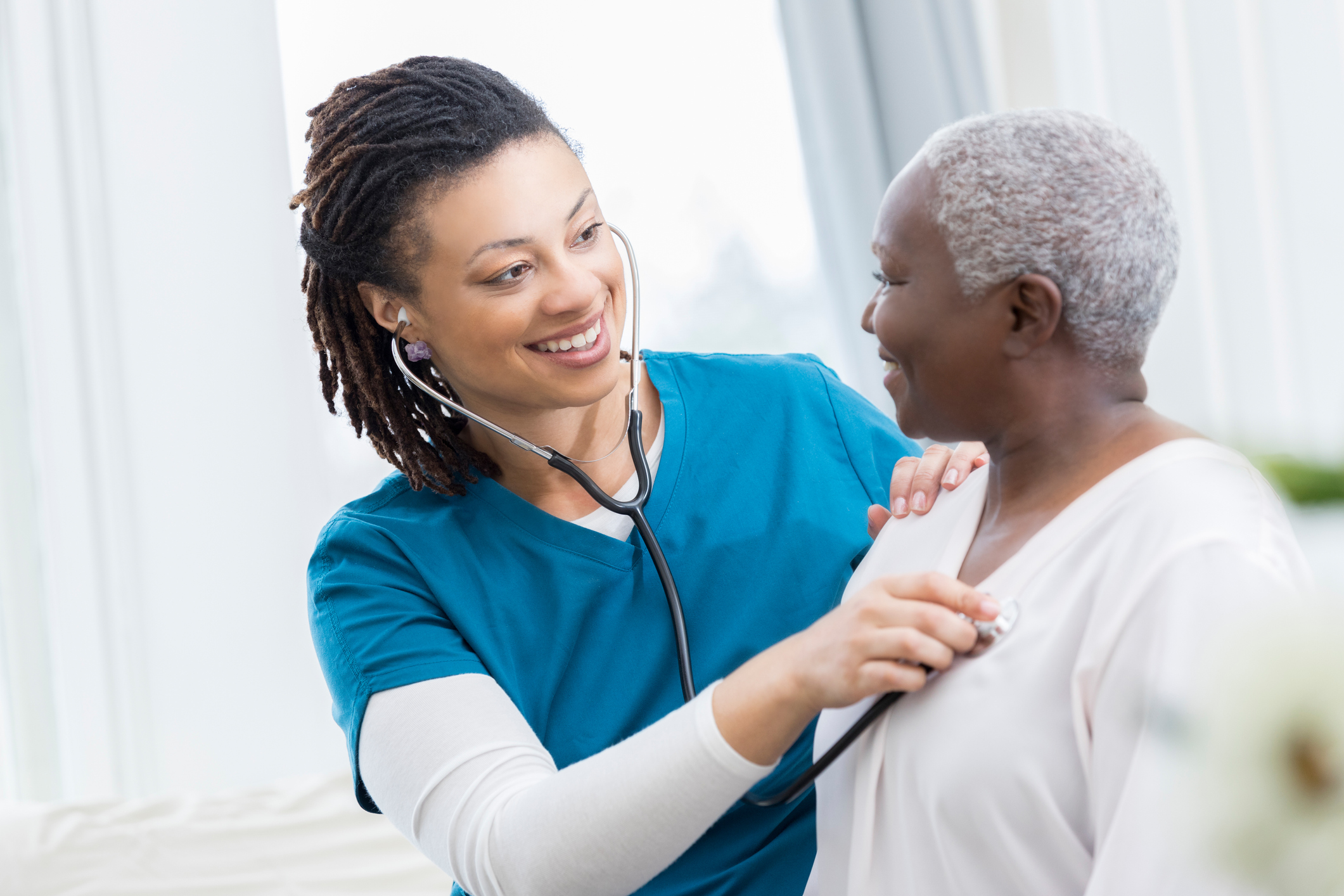March 12 kicks off Pulmonary Rehabilitation Week, which celebrates rehabilitation therapists and programs that help patients breathe easy.
Carle Pulmonary team members focus on the diagnosis and treatment of chronic illnesses that affect the lungs, such as chronic obstructive pulmonary disease (COPD).
Darrell Abrahamson was diagnosed with Alpha-1 antitrypsin (AAT) deficiency 20 years ago, with usage of 48 percent of his total lung capacity. “In 2013, I got pneumonia and a lung infection. I lost another ten percent of my lung capacity, so now I’m at 38 percent,” said Abrahamson. AAT occurs when the body does not produce the alpha-1 antitrypsin protein needed to protect the lungs from damage, dust or air pollution.
Pulmonary rehab helps patients manage the symptoms of their conditions, including AAT, using exercise to improve breathing.
“Darrell began pulmonary rehab because he was experiencing shortness of breath with activity,” said Sarah Moore, Registered Respiratory Therapist.
Abrahamson began rehab at Carle in 2014, and Victoria Famuyide, DO, medical director of Pulmonary Rehabilitation, began treating him as his pulmonologist in 2019.
“Each patient undergoes an initial enrollment assessment by the respiratory therapist, including a six-minute walk test, evaluation of any physical limitations due to prior injury and assess which equipment or exercise a patient will be able to physically tolerate,” said Dr. Famuyide. “The exercise is individualized for each patient to meet the target goals they would like to achieve.”
The rehab program happens in Phase 2 and Phase 3. In Phase 2, individualized treatment plans focus on performing flexibility exercises, strength training and endurance exercises. These improve breathing, circulation, heart and lung function.
In Phase 3, the patient continues these exercises on their own for as many sessions as they like with the same health goals of Phase 2. The rehab team monitors them, but patients have autonomy over their sessions.
“Usually, their quality of life has improved,” said Dr. Famuyide. “They’ve made friends with their classmates and our staff. We encourage them to continue what they have built up and remind them that pulmonary rehab has been proven to reduce hospital admissions.”
“Both Phase 2 and Phase 3 focus on long-term health,” said Moore. “These programs will not ‘fix’ the patients’ lungs, but they will help them to learn many ways to improve their daily lives while living with lung disease.”
“Phase 2 also includes counseling and education on their specific lung disease and how to deal with anxiety, depression and other life situations while they are dealing with their lung disease,” said Dr. Famuyide.
 Abrahamson felt the benefits of the programming right away, attending Phase 2 classes three days a week for 36 sessions with handouts to follow for exercising at home. “I’m doing better than I was four years ago,” said Abrahamson. “I do have diabetes, which isn’t good for anyone, but I lost 60 pounds. I went to rehab and could work a lot harder without the weight.”
Abrahamson felt the benefits of the programming right away, attending Phase 2 classes three days a week for 36 sessions with handouts to follow for exercising at home. “I’m doing better than I was four years ago,” said Abrahamson. “I do have diabetes, which isn’t good for anyone, but I lost 60 pounds. I went to rehab and could work a lot harder without the weight.”
“We focused on adding one minute to one machine each week as long as his shortness of breath was in the slight to moderate zone and his oxygen saturations were within normal limits," said Moore.
Abrahamson has continued with Phase 3 classes for the last nine years.
“I saw that taking these classes and workouts helped me,” said Abrahamson. “I wanted to get better, so I started going on my own. I met a lot of people who became my friends.”
Abrahamson also speaks to those in Phase 2 to continue with Phase 3. “I tell them if they quit, it’s like they wasted their time,” said Abrahamson. “Unless you’re exercising at home and know what you’re doing, you won’t get better.”
“They should definitely continue the momentum they built during their 3 months of Phase 2 exercise," said Moore. "They have worked too hard to go back to how they were feeling when they first began.”
Dr. Famuyide encourages pulmonary rehab patients to join Carle’s Facebook support group. Carle pulmonary rehab programs are in Urbana, Danville, Mattoon, and Normal.
For more information on how to join the pulmonary rehab program, visit Carle.org.
Carle Pulmonary team members focus on the diagnosis and treatment of chronic illnesses that affect the lungs, such as chronic obstructive pulmonary disease (COPD).
Darrell Abrahamson was diagnosed with Alpha-1 antitrypsin (AAT) deficiency 20 years ago, with usage of 48 percent of his total lung capacity. “In 2013, I got pneumonia and a lung infection. I lost another ten percent of my lung capacity, so now I’m at 38 percent,” said Abrahamson. AAT occurs when the body does not produce the alpha-1 antitrypsin protein needed to protect the lungs from damage, dust or air pollution.
Pulmonary rehab helps patients manage the symptoms of their conditions, including AAT, using exercise to improve breathing.
“Darrell began pulmonary rehab because he was experiencing shortness of breath with activity,” said Sarah Moore, Registered Respiratory Therapist.
Abrahamson began rehab at Carle in 2014, and Victoria Famuyide, DO, medical director of Pulmonary Rehabilitation, began treating him as his pulmonologist in 2019.
“Each patient undergoes an initial enrollment assessment by the respiratory therapist, including a six-minute walk test, evaluation of any physical limitations due to prior injury and assess which equipment or exercise a patient will be able to physically tolerate,” said Dr. Famuyide. “The exercise is individualized for each patient to meet the target goals they would like to achieve.”
The rehab program happens in Phase 2 and Phase 3. In Phase 2, individualized treatment plans focus on performing flexibility exercises, strength training and endurance exercises. These improve breathing, circulation, heart and lung function.
In Phase 3, the patient continues these exercises on their own for as many sessions as they like with the same health goals of Phase 2. The rehab team monitors them, but patients have autonomy over their sessions.
“Usually, their quality of life has improved,” said Dr. Famuyide. “They’ve made friends with their classmates and our staff. We encourage them to continue what they have built up and remind them that pulmonary rehab has been proven to reduce hospital admissions.”
“Both Phase 2 and Phase 3 focus on long-term health,” said Moore. “These programs will not ‘fix’ the patients’ lungs, but they will help them to learn many ways to improve their daily lives while living with lung disease.”
“Phase 2 also includes counseling and education on their specific lung disease and how to deal with anxiety, depression and other life situations while they are dealing with their lung disease,” said Dr. Famuyide.
 Abrahamson felt the benefits of the programming right away, attending Phase 2 classes three days a week for 36 sessions with handouts to follow for exercising at home. “I’m doing better than I was four years ago,” said Abrahamson. “I do have diabetes, which isn’t good for anyone, but I lost 60 pounds. I went to rehab and could work a lot harder without the weight.”
Abrahamson felt the benefits of the programming right away, attending Phase 2 classes three days a week for 36 sessions with handouts to follow for exercising at home. “I’m doing better than I was four years ago,” said Abrahamson. “I do have diabetes, which isn’t good for anyone, but I lost 60 pounds. I went to rehab and could work a lot harder without the weight.”“We focused on adding one minute to one machine each week as long as his shortness of breath was in the slight to moderate zone and his oxygen saturations were within normal limits," said Moore.
Abrahamson has continued with Phase 3 classes for the last nine years.
“I saw that taking these classes and workouts helped me,” said Abrahamson. “I wanted to get better, so I started going on my own. I met a lot of people who became my friends.”
Abrahamson also speaks to those in Phase 2 to continue with Phase 3. “I tell them if they quit, it’s like they wasted their time,” said Abrahamson. “Unless you’re exercising at home and know what you’re doing, you won’t get better.”
“They should definitely continue the momentum they built during their 3 months of Phase 2 exercise," said Moore. "They have worked too hard to go back to how they were feeling when they first began.”
Dr. Famuyide encourages pulmonary rehab patients to join Carle’s Facebook support group. Carle pulmonary rehab programs are in Urbana, Danville, Mattoon, and Normal.
For more information on how to join the pulmonary rehab program, visit Carle.org.
Categories: Redefining Healthcare
Tags: exercise, health, heart, lung, Pulmonary, rehabilitation, respiratory
